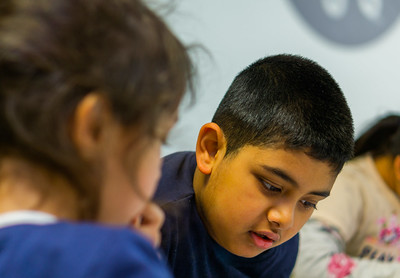Kirklees Library staff use teen theatre project to explore death and loss
As part of their involvement in the Tickets for the Afterlife project, Kirklees library staff developed an activity aimed at young adults and teenagers focusing on death and loss.
Using ‘The Thing about Jellyfish’ by Ali Benjamin as a starting point (a book involving the death of a character and the impact this has), library staff worked with local theatre group Chol to plan activities which focused on the theme of loss: loss due to death, loss of routine, friendship and voice.
During phase one of the project, library staff and Chol worked with three groups of young people. One was a group of young carers from Barnardo’s, one a group of year 12 performing arts students and the third a group of young people involved in creative writing and production with Chol.
The activity sessions included feedback time for the participants to give their opinions and suggest changes. These were later incorporated into the session plans. The suggestions and comments of the young people were insightful and sensitive, with several sharing their own personal experiences. It was interesting to see how empathetic each group felt towards the main character in the book, particularly how lonely she felt after the death of her friend. The groups also noted the impact the death had on various elements of her life, including her relationship with her parents and other friends.
The co-produced sessions are now complete and ready to be offered to local schools and groups. Library staff are promoting via networks and outreach with a view to rolling out activity from September 2021.
What were the aims of the sessions?
-
To use ‘The Thing about Jellyfish’ as a starting point for a series of drama activities which encourage young people to think about death and loss.
-
To engage a group of young adults and teenagers in a series of drama activities exploring the theme of death and loss.
-
To work with young people to co-produce project activities.
-
To ensure the voice of young people is central to the activities being developed.
What resources did you use?
Librarians had a clear idea of the project aims and were keen to include a co-production element. They brought their book knowledge and group management skills to ensure the discussions and tasks remained focused. Librarians also engaged with partners to encourage participation, promoting the project through outreach and network contacts.
The skill, imagination and expertise of Chol staff was crucial in ensuring the project activities were appropriate, sensitive and challenging. Chol staff have a proven track record of using stories, performance and collaboration to boost the confidence of young people. They value the voices and opinions of young people. Working with a partner organisation of this calibre is proving vital in exploring the senstitve nature of the project.
The Zoom link and IT support during the activity were provided by Chol.
Can you tell us about the results?
Evaluation of phase 1 of the project consisted of verbal feedback and an evaluation survey. Feedback was positive, with participants reflecting on opportunities to put themselves in the different characters’ shoes, showing the development of empathy through the use of the book. It also highlighted the positive impact of using drama to support learning and understanding and how the story challenged perceptions around how you might feel when a friend has died.
'I liked it when Suzy’s dad was ignoring her but I kept thinking that this shouldn’t be happening to her. I felt really sad for her.'
'When it was mentioned that one of the characters died, I thought I might get upset but I didn’t get upset, I just felt interested in how Suzy was going to cope.'
'It made me surprised to read about how angry Suzy was after her friend died. She wasn’t just a bit angry she was full-on angry.'
'I liked acting out imaginary conversations between the characters. I have never done anything like that before but once I started talking I got really into it.'
Phase 1 of the project is complete and phase 2 will be rolled out during the next academic year (2021-2022).
What are the key lessons?
- A book is an effective starting point for exploring the topic of death, dying, bereavement.
- Partnership with an arts practitioner was key to fully exploring how drama and performance could be used to enrich the exploration of the book’s themes.

